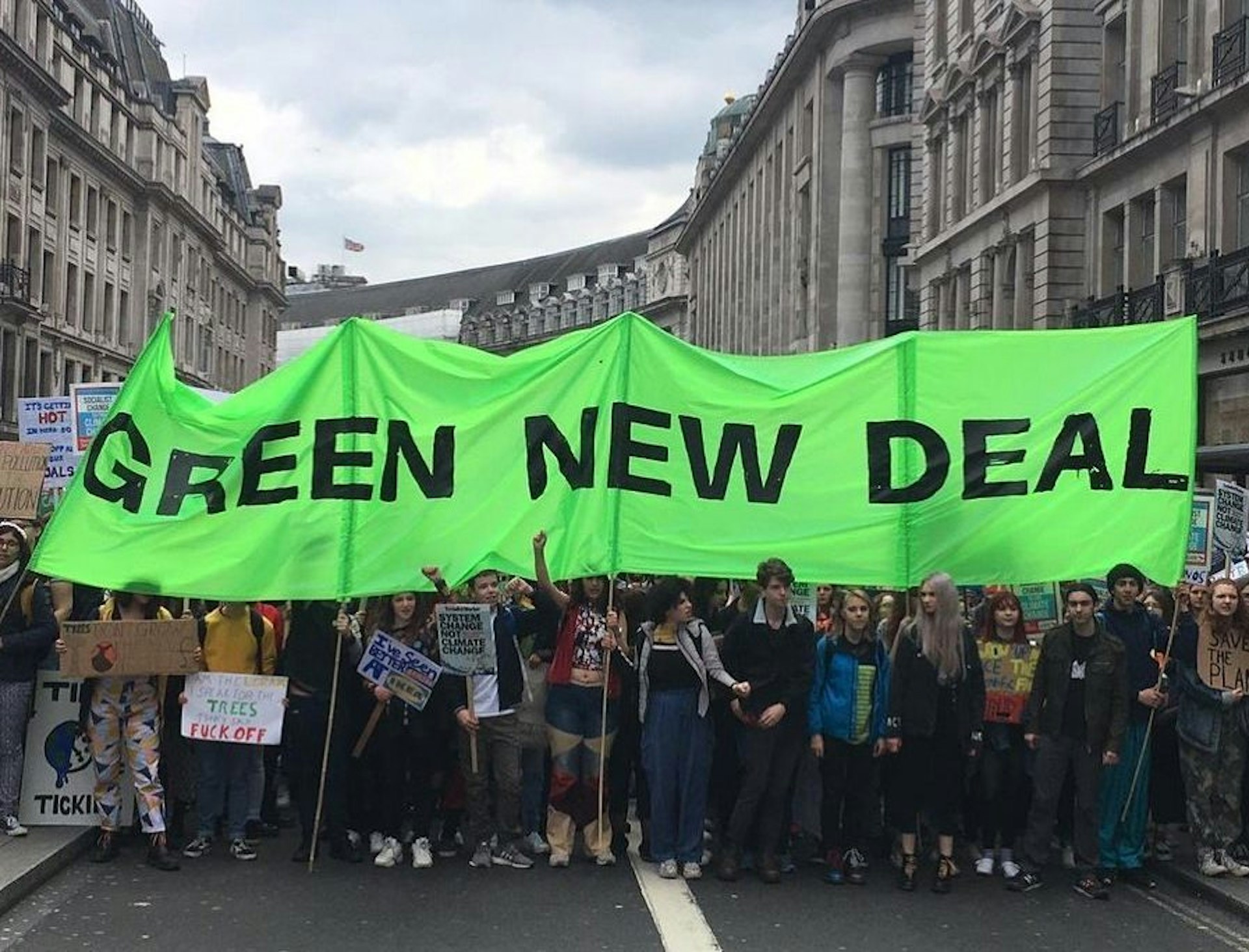
Keir Starmer must not alienate Labour‘s climate activists
- Text by Chris Saltmarsh
- Photography by '@labourgnd via Instagram
The world of internal Labour Party organising is long and arduous. With its Annual Conference every September (except for when pandemics get in the way), activists start the process of developing motions to send as early as January. This was when Labour for a Green New Deal began deliberating on our priorities amid a new context: a pandemic, unemployment crisis, new Tory government, and new Labour leadership. Not to mention worsening extreme weather induced by climate change.
Nine months later, our ‘green jobs revolution’ motion had been submitted to Labour Conference by 21 constituency parties (CLPs). On Thursday, we received the news that these motions had been ruled out of order by the party’s Conference Arrangements Committee (CAC). The justification given was that the motion “refers to more than one subject area”, thus not meeting criteria set out in the Party’s rulebook.
The decision and the reasoning came as a surprise. The motion was written to have a tight focus on a core element of the Green New Deal: the creation of good green jobs. The thing about putting forward a plan to create millions of green jobs through mass investment and expanding public ownership is that it necessarily touches on many areas of the economy. The motion calls for investment in green tech, housing, public transport, agriculture, care, telecommunications, energy and nature. That a green jobs revolution is broad in scope does not mean it is greater than “one subject”.
Based on Keir Starmer’s track record as Labour Party Leader, it’s not unreasonable to assume that blocking this motion is yet another in a long line of factional anti-democratic moves to alienate ordinary members. The irony is that Labour for a Green New Deal is a campaign group which prioritises unity, actively engaging with the Party at every level of democratic process.
Labour Party members from numerous constituencies have submitted a resolution so that the Party Conference discusses a comprehensive policy for a Green New Deal to tackle the climate crisis. It’s been ruled out of order on spurious grounds. Appalling decision by Labour leadership https://t.co/BILsxlHPlM
— John McDonnell MP (@johnmcdonnellMP) September 16, 2021
Since we founded the organisation in March 2019, a core aim has been bringing together both the labour movement and climate activists around a shared vision and policy platform, with the Labour Party as the vehicle for that unity. We have constructed motions designed to maximise support from all wings of the party and our movements so that we can build from what we agree on rather than getting bogged down in where we differ.
It is true, and no secret, that we are proudly socialist. We believe that capitalism is the root cause of the climate crisis and economic justice, and that socialist transformations of the economy are necessary preconditions for decarbonisation and eliminating inequality. But we also believe that any movement for climate and economic justice must maintain a broad base. We are an open organisation which empowers new activists to take responsibility rather than relying on the same old cliques. We engage in dialogue with MPs, trade unions and climate groups across the political spectrum.
We have played our part in reaching across our movements to develop a compelling and popular platform that can convince a majority of voters to put their trust in Labour to form a government. For these reasons, the bureaucratic blockage of our motion can only be seen as a repudiation of a politics of unity and consensus. Instead, the Labour Party machine chooses self-defeating factionalism and political vapidity.
Keir Starmer and his General Secretary, David Evans, now have two options. The first, which they should take, would be to overturn CAC’s decision. With this path, they can begin to re-engage members, facilitate lively democratic debate, and maintain a party capable of winning elections. The second, which seems to be more in character, would be to ignore this decision and leave opaque committees to conduct their dirty work. It would contribute to further alienating a generation for whom climate justice is a priority and the Green New Deal a ray of hope. The former gives Starmer’s Labour a fighting chance. The latter is a shot in both feet.
Chris Saltmarsh is a co-founder of Labour for a Green New Deal. Follow him on Twitter.
Enjoyed this article? Like Huck on Facebook or follow us on Twitter.
